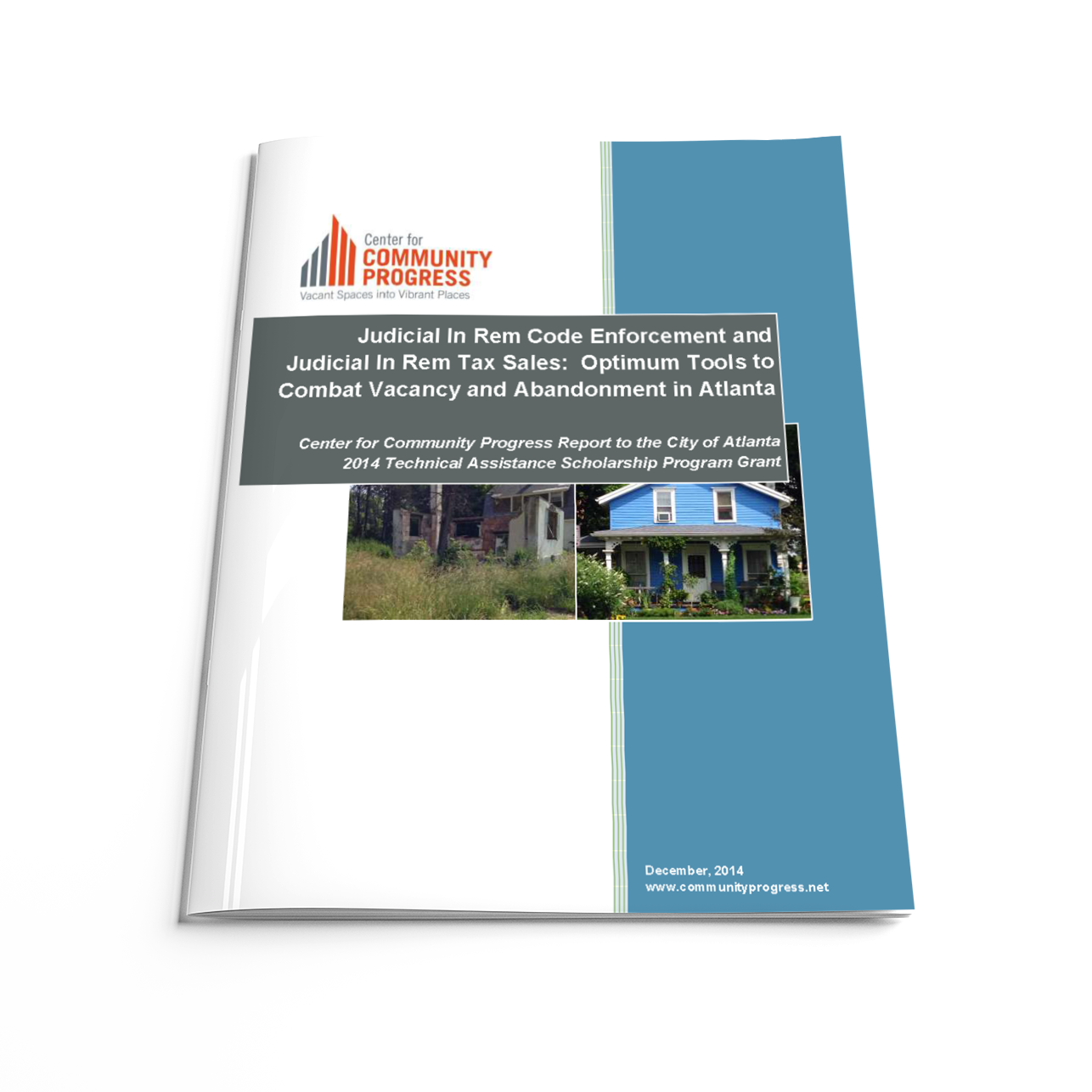
Judicial In Rem Code Enforcement and Judicial In Rem Tax Sales
Optimum Tools to Combat Vacancy and Abandonment in Atlanta
Topic(s): Code Enforcement System, Local Analysis
Published: December 2014
Geography: Georgia
Author(s): Center for Community Progress
In response to concerns raised by citizens and local government leaders, a taskforce of City of Atlanta leaders engaged the Center for Community Progress to identify legal and policy tools to address vacant, abandoned, and code-delinquitent properties.
This report identifies the optimum legal and policy response to vacant, abandoned and substandard properties—single family, multi-family and commercial units—in light of the tools currently available to the City of Atlanta. The report is informed by our experience with similar systems across the country, by analysis of existing Atlanta legal and policy tools, by interviews with key stakeholders, and by the tenacious and coordinated work of the Vacant and Abandoned Property Work Group. While a range of systems and policy tools may impact vacancy, abandonment and the presence of housing and building code violations, the focus of this report is on the optimum use of code enforcement—typically the first line of defense in the face of vacancy and abandonment—and delinquent tax enforcement to make an impact in neighborhoods.
The most important finding described in this report is that the City of Atlanta already has at its disposal the necessary legal and policy tools to maximize the possibility of forcing property owners to fix up problem properties, pay up taxpayer expended funds spent on such properties, or give up problem properties to responsible public or private ownership. A tool called Judicial In Rem Code Enforcement has been on the books in the Atlanta Code for several years—it has simply never been utilized effectively. Similarly, state law has long authorized an effective delinquent tax enforcement tool that may be used in conjunction with Judicial In Rem Code Enforcement—the Judicial In Rem Tax Sale. Instead of utilizing these efficient, effective civil tools to encourage the return of vacant, abandoned property to productive use, the City of Atlanta has focused its code enforcement efforts on a criminal process that is burdensome and expensive, and delinquent taxes are currently enforced utilizing a non-judicial process that provides little opportunity to positively impact problem properties. The current criminally focused code enforcement process is typically impossible to enforce in the face of the majority of code delinquent properties that are owned by corporate, indigent or out-of-state owners, and it provides no means to attach public funds expended as a priority debt on the property that may force a property transfer to responsible hands.
This report describes how Judicial In Rem Code Enforcement and Judicial In Rem Tax Sale procedures work, recommends abandoning criminal code enforcement procedures in favor of these existing civil tools, and makes specific recommendations for the use of these tools in concert with one another on vacant, abandoned and code delinquent properties throughout the City
Topic(s): Code Enforcement System, Local Analysis
Published: December 2014
Geography: Georgia
Related Publications
Other Related Content
Get the latest tools, resources, and educational opportunities to help you end systemic vacancy, delivered to your inbox.
